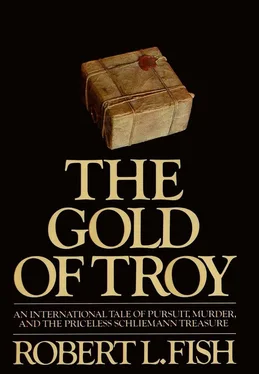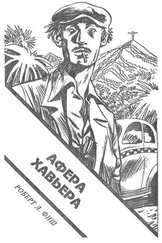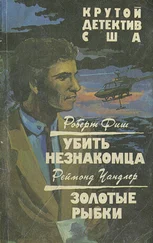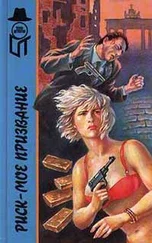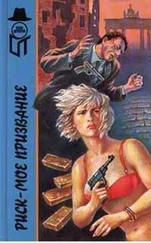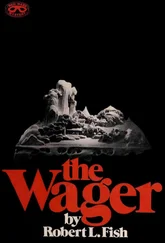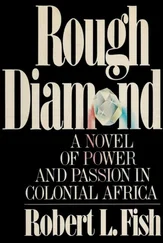“And?” the captain asked, pleased that at last the name Schliemann had come into the story.
“And Schliemann proved it.” From the sergeant’s triumphant tone one would have thought it was Professor Kolenko who had made the discovery. “He not only discovered the site of the ancient city of Troy, but he found weapons conforming to Homer’s description, found the city walls where Homer had said they were, and in general proved — at least to his own satisfaction, as well as to the satisfaction of many others, while others still doubted — that Homer had been writing fact.”
“And the treasure?” the captain asked.
“Ah, yes. He also discovered the treasure — Priam’s treasure — the part that was left after Priam had ransomed the body of Hector and brought it back to Troy for proper burial.”
“He found a treasure, eh?” the captain said. “And when did he do all this?”
“In 1873, over seventy years ago.”
“And what happened to it?” The captain’s initial enthusiasm for the story was waning a bit. He thought the conversation, while certainly educational and interesting to a point, was going no place. It wasn’t like the philosophical or even practical discussions he had had in the past with his quartermaster, nor did it seem like a conversation to delay thoughts of future distasteful duties for very long. His mind began to wander to thoughts of burial details and other unpleasant subjects.
“What happened to it was that Schliemann donated it to a German museum,” the sergeant said, and now he was beginning to feel pleased at how neatly he had worked the story up to this point. “The museum was here in Berlin. And when the bombing began to destroy museums as well as other government — not to mention private — buildings, it was apparently decided it would be safer hidden under good, strong concrete. In a bunker.”
The captain’s eyes widened, his attention now fully caught. The sergeant continued, a faint smile on his lips.
“Under the zoo...”
Now the full import of what he had been hearing suddenly struck the captain. “What! No—!”
“Yes, sir,” the sergeant said, and grinned widely. “It’s outside your quarters right now.”
“I can’t believe it.” The captain’s eyes narrowed. “Is this some sort of a joke, Sergeant?”
“No, sir! I don’t joke about—”
“Well, if it isn’t, bring it in and let’s have a look at it!”
“Yes, sir!” The sergeant went out and returned dragging the trunk easily by one handle. The door was closed, the lid thrown back. Captain Sudikoff stared as the sergeant carefully, almost reverently, unwrapped each bundle, placing their contents on the tissue paper along the bench. The captain frowned.
“That’s gold?”
“Yes, and almost pure, too. To make the fine wire they had to work it very soft. They didn’t have the tools or the techniques for doing delicate work in metals in those days unless they were very soft. They could work metals like bronze — copper and tin — for larger and harder pieces — spears, shields, weapons — but for the fine wire used in some of the delicate gold ornaments, they had to work it almost pure.”
The captain was still staring at the bench, loaded with bracelets, beads, masks, buttons, ornamental singlets. He seemed dazed by the enormity of the discovery. He also looked as if he hadn’t heard a word of the sergeant’s explanation, as indeed he hadn’t. He looked up, staring at his quartermaster.
“What do we do with it?”
“Captain?”
“I said, what do we do with this... this... this stuff, now that we’ve found it? Incidentally, who did find it?”
“Two of our troops. I had them looking for food, and they came up with this trunk.”
“Do they know what’s in it?”
“Yes, sir.” The sergeant suddenly understood the possible import of the question. “But they have no idea of what it is. They were going to destroy it, or hand it out for souvenirs to the others. They won’t think anything about it.”
“So what do we do with it?” The captain thought a moment and then shrugged. His first reaction at seeing the treasure was abating. “Maybe the two had a good idea. Handing it out to the troops for souvenirs, I mean.”
Sergeant Kolenko was shocked. He looked at the captain, aghast.
“Captain! You can’t be serious! You can’t do that! It’s a world-famous collection, one of the most valuable that exists! Break it up? Hand it out piece by piece like... like—” Comparisons failed him. He was rescued by a remembered fact. “In any event, it’s not ours to hand out or to do anything else with. We have instructions to turn it over.”
The captain frowned. “Turn it over? To whom?”
“To the Allied Art Commission. You remember the order. All recovered art treasures are supposed to be reported and turned over to the Commission for final disposition after the war.”
Captain Sudikoff snorted. “Nonsense!”
“But our government agreed to it,” the sergeant said, and now that he was at least in what could be construed as partial disagreement with his superior, he added, “sir!”
“Nonsense!” The captain shook his head in cold determination. “Turn something this valuable over to who? To the Americans? Who held up helping us in the war until we had almost bled to death? Who pushed Germany into the war against us in the first place? And now give them the spoils? Because, you know, this Allied Commission of yours will never give it back to Germany. No, sir!”
“But — what will we do with it then, sir?”
“I don’t know...” The captain thought a moment and then suddenly smiled. “Or, rather, I do know. I’ll do what every good army man would do in the same circumstances,” he said. “I’ll pass the decision up the line...”
Berlin — May
Hitler was dead, the peace had finally been signed. Those Germans in uniforms, or those whose papers looked too recent to be true, or those recognized by former camp inmates, were on their way to prison camps. The others had been commandeered into clearing the rubble from the shattered streets of Berlin. Even some restaurants and bars had been permitted to open, bringing from their dungeon cellars hidden foods and bottles. The war was over.
But for some the war could never be over, and among them was Hans Gruber. Hans Gruber was an old man, but he was a dedicated German and devoted to Adolph Hitler and his cause, dead or alive. Gruber was uneducated and he knew nothing of politics, but he did know that only under the Nazis had he known a feeling of self-fulfillment, of being part of something he sensed was important.
Before the beginning of the bombings, when the zoological station in the Tiergarten was still in normal operation, Gruber had been a porter there. When the need for bunkers beneath important buildings was evidenced by the increased death and destruction that were beginning to rain upon the city despite the promises of Reichmarshal Goering, Gruber willingly helped in the construction of the one that had been constructed in the area of the elephant cages, poking its bulk in the air. And when the Schliemann treasure had been brought to the bunker and stored in its little niche for safekeeping, Hans Gruber had helped, and had even been the one to cover the hole in the wall with plaster to hide any evidence of its location. And when the final hour had come before fleeing with the others before the Russian advance, it was Gruber who had hastily piled rubbish against the niche. The bombardment had shaken the walls and brought down the thin shell of plaster that had protected the cavelike opening. It was a poor attempt and Gruber was aware of it, but one could scarcely go running down the rubble-strewn streets with a trunk in one’s arms. Carrying one’s life down those dangerous streets was task enough.
Читать дальше
